Third Party Liability for Serving Alcohol Dram Shop and Social Host Laws
As every action has consequences, so does the act of serving alcohol.
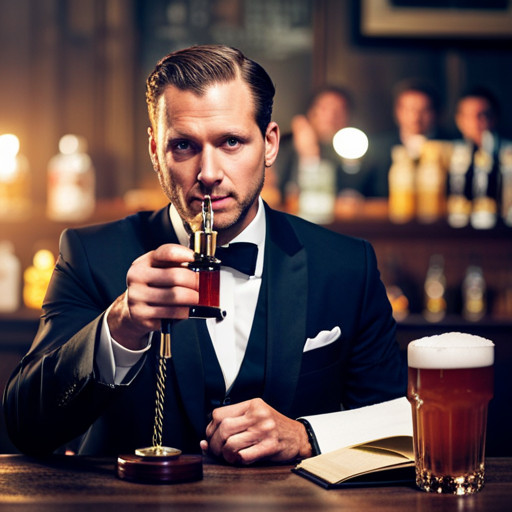
This article delves into the legal implications of third-party liability for serving alcohol under Dram Shop and Social Host Laws.
It provides a comprehensive analysis of these laws across various states, the determination of liability, the effect of damage caps on compensation, and the nuances of serving minors.
It aims to elucidate the boundaries of responsibility, from commercial establishments to private hosts, in cases involving alcohol-related harm.
Key Takeaways
- Dram shop laws hold establishments responsible for the actions of their intoxicated patrons, imposing liability on establishments that provided alcohol to a customer who later caused an accident and injured someone.
- The legal standard for liability in dram shop cases is negligence, where injured parties must prove that the establishment or person serving the alcohol knew or should have known that the patron was drunk.
- Some states only hold bars accountable for injuries caused by underage individuals, while others require businesses serving alcohol to have specific liquor liability coverage.
- Damage caps for personal injury lawsuits may also apply to dram shop cases, limiting the amount of compensation a victim can recover, although some states like Texas allow juries to award damages without limits in certain cases.
Understanding Dram Shop Laws

Dram shop laws, currently in effect in 42 states and the District of Columbia, impose liability on establishments for the actions of intoxicated patrons, particularly in instances where the consumption of alcohol in these establishments leads to accidents and subsequent injuries. These laws play a pivotal role in promoting responsible alcohol service, thereby reducing the likelihood of alcohol-related accidents.
The impact of dram shop laws on alcohol serving establishments is significant, with potential legal repercussions for negligence or reckless conduct. Negligence is ascertained when it is proven that the establishment knew, or should have known, of the patron's intoxication. Recklessness, on the other hand, signifies the continuation of alcohol service despite the evident risks.
Therefore, awareness, adherence, and the proper implementation of these laws are crucial for all alcohol-serving institutions.
States Implementing Dram Shop Laws
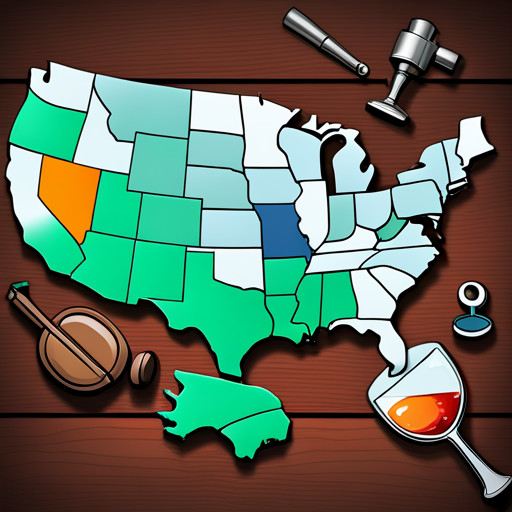
In the United States, 42 jurisdictions, inclusive of the District of Columbia, have enacted legislation that holds establishments accountable for the actions of inebriated patrons they have served. These rules, known as dram shop laws, have substantial bearing on incidents involving intoxicated individuals. A key consideration in understanding the impact of dram shop laws on drunk driving accidents involves examining the disparities in the implementation and enforcement of these laws across different states.
| State | Dram Shop Law | Social Host Liability Law |
|---|---|---|
| New York | Yes | Yes |
| California | Limited | Yes |
| Texas | Yes | Limited |
| Florida | Yes | Yes |
| Illinois | Yes | Yes |
Analyzing the effectiveness of social host liability laws in reducing alcohol-related incidents is also essential. These laws hold private individuals accountable for the actions of their intoxicated guests.
The Purpose of Dram Shop Laws
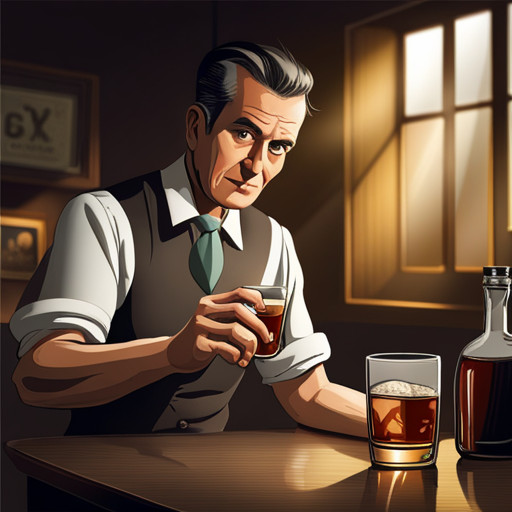
Establishments providing intoxicating beverages to patrons bear a significant responsibility, as dictated by certain legislations, to prevent accidents and injuries caused by inebriation, thus furthering the primary objective of these legal provisions.
The effectiveness of dram shop laws in reducing drunk driving incidents is a notable aspect of their purpose. These laws impose stringent obligations on alcohol-serving establishments to deter over-consumption, inevitably leading to a decline in alcohol-related mishaps.
The role of dram shop laws in promoting responsible alcohol service is also fundamental. By holding establishments liable for the misconduct of their intoxicated patrons, a strong incentive is created to enforce responsible service of alcohol.
Thus, these laws serve to uphold public safety by mitigating drunk driving occurrences and fostering responsible alcohol service.
States Without Dram Shop Laws

Despite the prevalence of legislation imposing accountability upon venues dispensing liquor, there are eight states, including Delaware, Nevada, Nebraska, South Dakota, Virginia, Kansas, Louisiana, and Maryland, which have not enacted such laws.
The absence of dram shop laws in these jurisdictions has several implications, including:
1. Impact on Insurance Premiums: Without dram shop laws, venues may not be required to carry liquor liability insurance, potentially reducing their operating costs.
2. Public Opinion: The perception of these laws' effectiveness in preventing alcohol-related incidents varies. Some argue that the absence of such laws may lead to irresponsibility in alcohol service.
3. Legal Ramifications: Victims of alcohol-related incidents may find it more difficult to seek compensation in states without dram shop laws.
4. Economic Implications: The potential financial burden of alcohol-related incidents might fall on the state or the victims, rather than the establishments serving alcohol.
Determining Liability Under Dram Shop Laws
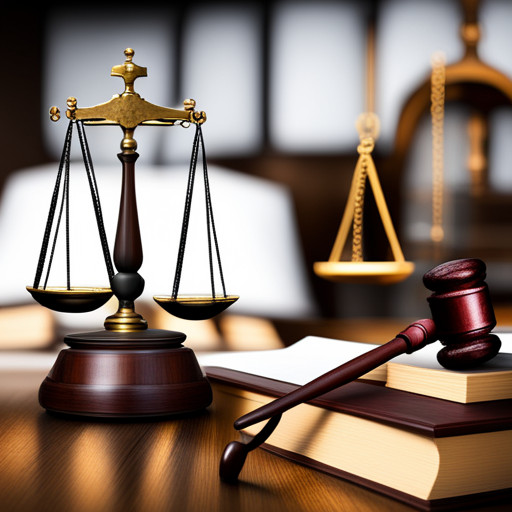
Determining culpability under legal regulations that hold venues accountable for the actions of intoxicated patrons necessitates a standard of negligence, whereby it must be proven that the venue or individual dispensing the drink was aware or should have been aware that the customer was inebriated.
Establishing causation in dram shop cases poses a significant challenge, given the necessity to connect the act of over-serving alcohol to subsequent harmful conduct. The hurdles lie in proving that the establishment had knowledge or should have known about the patron's intoxication level.
Evidence substantiating this claim often includes surveillance footage, witness accounts, or the patron's visible signs of intoxication.
Thus, the complexities inherent in dram shop liability cases underline the importance of comprehensive, meticulous legal analysis in ascertaining negligence and proving liability.
Role of Negligence in Dram Shop Cases
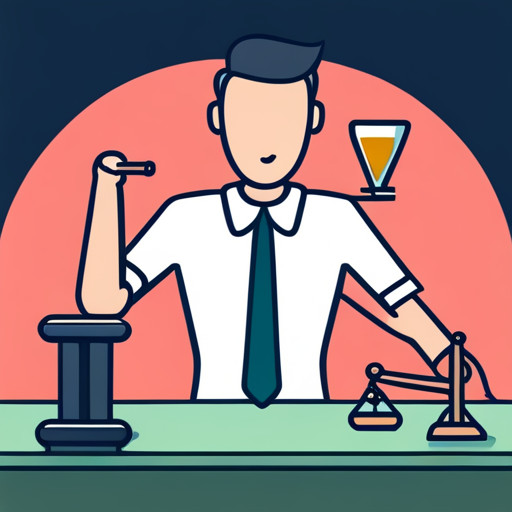
Following a detailed analysis of liability under dram shop laws, attention is now directed towards the role of negligence in such cases. Pertinently, negligence standards play a critical role in determining liability in dram shop cases.
1. Negligence is established if it can be proven that the establishment had knowledge or should have reasonably known that the patron was intoxicated.
2. Recklessness, serving alcohol despite the foreseeable risk of harm, may in some jurisdictions elevate the severity of the negligence and thus the impact of liability.
3. The establishment's failure to exercise due care towards the patron and third parties can result in liability for damages.
4. The impact of liability, often significant, underscores the necessity for establishments to adhere to responsible serving practices.
The Concept of Recklessness in Serving Alcohol
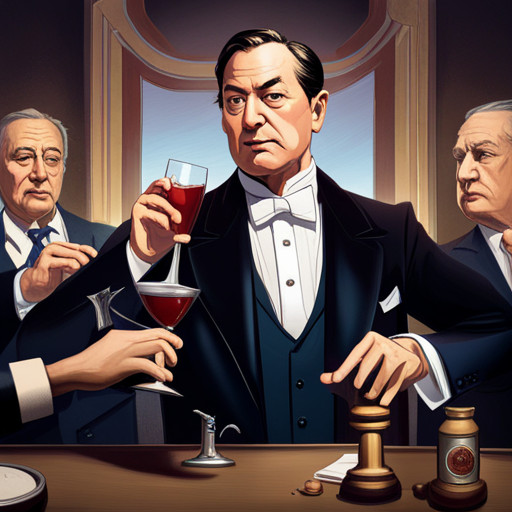
In the context of negligence, recklessness plays a significant role. It is often characterized by the continuous provision of beverages containing alcohol to patrons, despite awareness of the potential harm it may cause.
The distinction between recklessness and negligence in dram shop cases is paramount. The former involves a higher threshold of liability. Recklessness implies a conscious disregard for a substantial risk of harm, whereas negligence entails a failure to exercise reasonable care.
The threshold for recklessness is higher, necessitating proof of intentional disregard for the safety of others. This distinction is important in determining the level of liability in cases involving the provision of alcohol to patrons.
Similar principles apply under social host laws. An adult host may be held liable for the negligent or reckless provision of alcohol to guests, particularly if such actions result in harm.
Overall, understanding the difference between recklessness and negligence is crucial in determining the level of liability in cases involving the provision of alcohol.
Variation in Legal Standards Across States
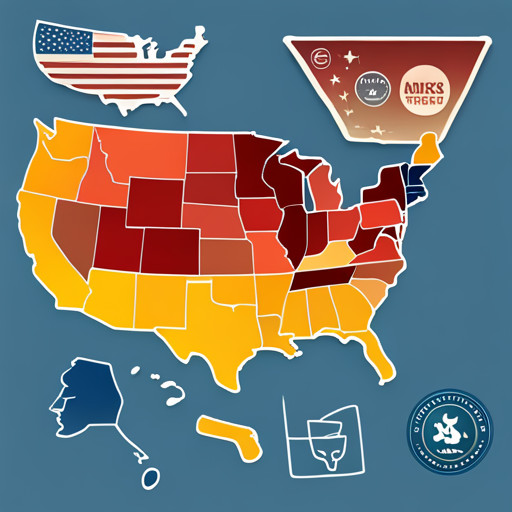
Variation in legal standards related to the provision of alcohol across states reflects a complex patchwork of legislation, with certain jurisdictions imposing stricter liability thresholds on establishments and individuals.
Dram shop laws, present in 42 states and the District of Columbia, significantly impact alcohol serving establishments by imposing potentially severe liability for actions of intoxicated patrons.
The enforcement challenges of social host liability laws are considerable, stemming from the difficulty in tracing liability to individuals hosting social gatherings.
Variations in legal standards, particularly in negligence and recklessness thresholds, occur between states, affecting the ease of establishing liability.
Damage caps in personal injury lawsuits also differ across states, thereby influencing the compensation victims can potentially recover.
This underscores the intricate legal landscape surrounding alcohol provision and liability.
Consequences for Violating Dram Shop Laws
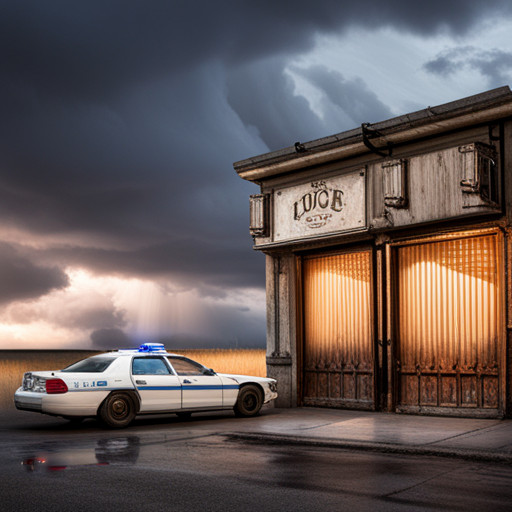
Consequences for violations of statutes relating to the provision of intoxicants can range from financial penalties to mandatory insurance requirements, with the precise nature of such sanctions varying widely between states.
Penalties for violating dram shop laws, for instance, could involve significant fines or even the revocation of a business's liquor license.
Liability under social host laws, on the other hand, can expose individuals to potential civil litigation and financial restitution should an intoxicated guest cause harm to others.
It is also worth noting that in some jurisdictions, repeat offenders may face increasingly severe sanctions, possibly extending to criminal charges.
The variability of these legal sanctions underscores the importance for establishments and individuals to understand their specific legal obligations in relation to the provision of alcohol.
Specific Insurance Requirements for Alcohol-Serving Establishments
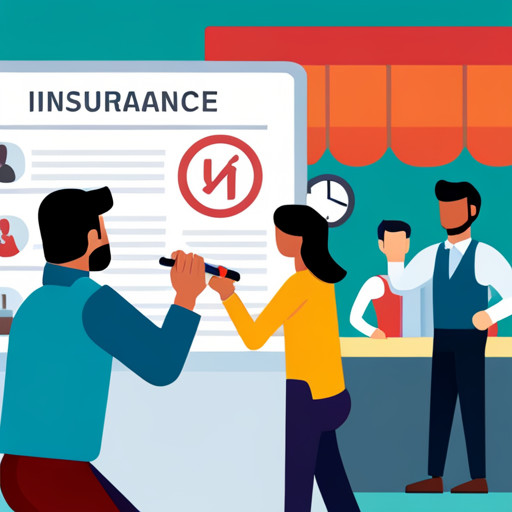
Mandatory insurance coverage is a requirement for some establishments that provide alcoholic beverages, with the specific nature of this obligation differing from state to state. These obligations often align with state dram shop laws, which dictate the circumstances under which an establishment may be held liable for damages caused by inebriated patrons.
1. Liquor liability coverage requirements: Depending on the jurisdiction, establishments may be required to maintain specific levels of insurance coverage to account for potential liability claims.
2. Penalties for dram shop violations: Varied penalties may be imposed for violations, including fines, suspension or loss of liquor license, and potential criminal charges.
3. Insurance coverage specifics: Coverage typically includes defense cost, claims involving minors, and assault and battery coverage.
4. Negligence claims: Insurance plans often provide coverage for claims wherein the establishment is accused of negligently serving alcohol to a visibly intoxicated individual.
Understanding Damage Caps in Personal Injury Lawsuits

The transition from insurance requirements for alcohol-serving establishments to damage caps in personal injury lawsuits presents a complex landscape. Understanding the impact of damage caps on personal injury lawsuits is crucial, as it highlights the limitations imposed on the compensation victims can receive. The introduction of such caps can alter the dynamics of a lawsuit, particularly in cases involving dram shop and social host laws. The table below provides an illustrative overview of the different damage caps across four states.
| State | Damage Cap |
| Texas | No cap |
| Ohio | $350,000 |
| Florida | $500,000 |
| California | $250,000 |
Each state has its own unique approach, underscoring the need for careful legal analysis. Future discussion will delve into exploring the effectiveness of social host liability laws in reducing alcohol-related accidents.
How Damage Caps Affect Compensation in Dram Shop Cases
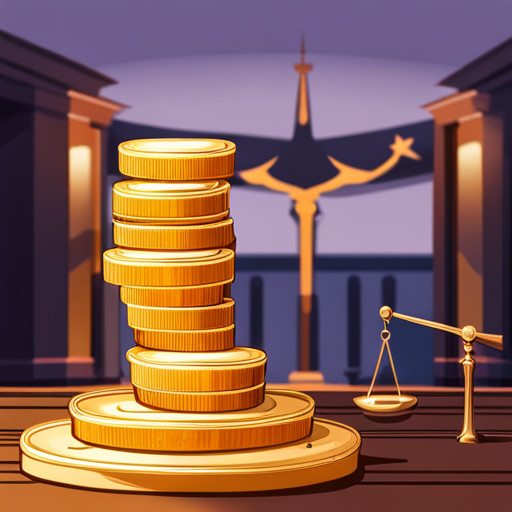
Influences of damage caps on the amount of compensation awarded in cases involving intoxicated patrons can significantly vary depending on the specific regulations in each state.
The impact of damage caps on compensation is primarily determined by state-specific statutory limits. These caps can limit the amount of non-economic damages a plaintiff can recover, even when an establishment is found liable for damages caused by an over-served patron.
Comparison of damage caps across states reveals considerable variation. For example, while some states, like Texas, allow unlimited compensation in certain cases, others have stringent caps in place.
The justification for these caps is often a contentious issue, with proponents arguing they prevent excessive awards, while critics claim they unjustly limit victim compensation.
Damage caps can potentially influence the decision to file a lawsuit and the strategy adopted during litigation.
The Basics of Social Host Laws
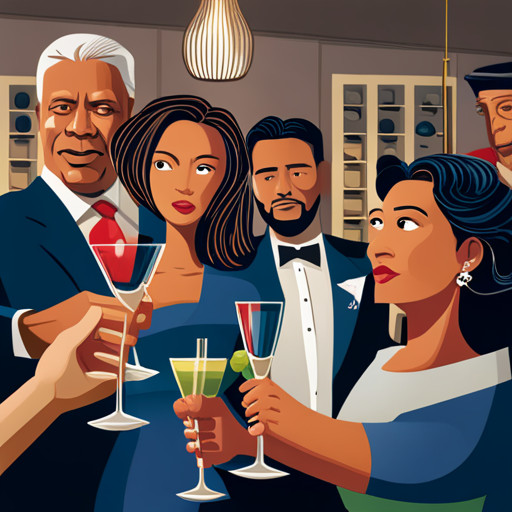
Understanding the basics of legislation pertaining to individuals who provide beverages containing ethanol to their guests is essential, as these regulations differ significantly from those that govern commercial establishments. Liability under social host laws for serving alcohol to adults is a key component of such legislation. This liability is not confined to commercial establishments, extending to private individuals who, knowingly or unknowingly, serve alcohol to intoxicated adults who subsequently cause harm or damage.
Violation of these laws can result in significant penalties, including fines and incarceration. Each jurisdiction has its own unique approach to these laws, with some implementing strict liability, regardless of the knowledge of the server, while others require demonstrable negligence. Therefore, a comprehensive understanding of local regulations is crucial.
Differences Between Social Host and Dram Shop Laws
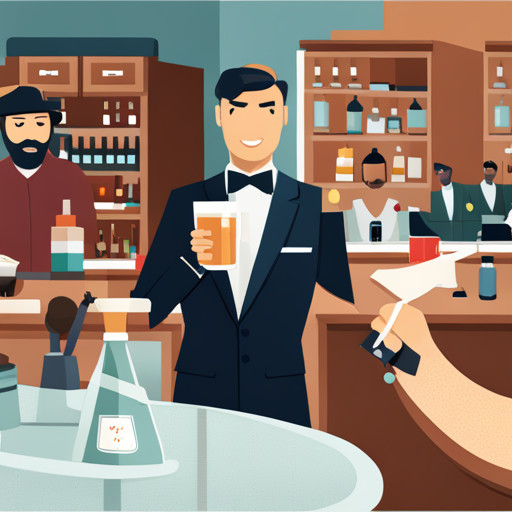
Differences in legal responsibilities for commercial establishments and private individuals supplying alcoholic beverages can be identified when comparing legislation such as dram shop and social host statutes.
1. Commercial establishments come under dram shop laws which hold them responsible for any harm or damage caused by an intoxicated patron, who was served alcohol at their premises.
2. Private individuals face liability under social host laws for serving alcohol to adults if an intoxicated guest causes harm or damage.
3. Penalties for dram shop violations differ across states, with some imposing severe fines and others implementing mandatory liquor liability insurance coverage.
4. Social host laws, conversely, vary widely in their enforcement and penalties, with most states imposing liability when alcohol is provided to someone under the legal drinking age.
Liability Under Social Host Laws When Serving Minors
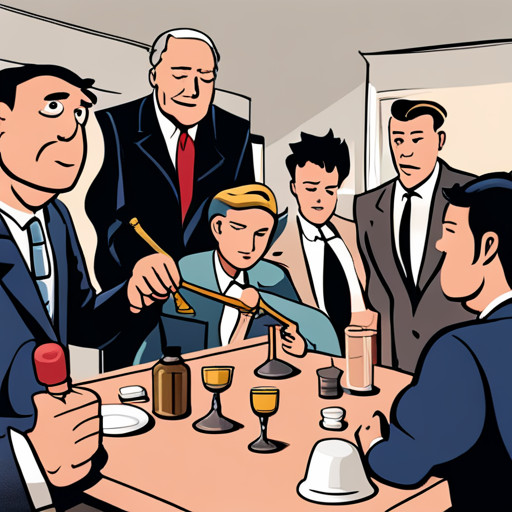
Exposure to legal consequences increases significantly when minors are provided with intoxicating beverages under the statutes of numerous states. This liability for serving alcohol to minors at private parties is primarily regulated by social host laws.
These laws, varying in enforcement and penalties across different states, hold individuals accountable for damages caused by intoxicated minors to whom they have supplied alcohol. It is imperative to understand that this liability can extend to include private homeowners, renters, or any individual providing alcohol.
In some jurisdictions, the imposition of penalties may not require a minor to be visibly intoxicated. Moreover, these laws are not restricted to instances where alcohol is sold, broadening the scope of potential legal ramifications.
Consequently, understanding and complying with state-specific social host laws is critical.
Frequently Asked Questions
What Legal Steps Should a Victim Take After Being Injured by an Intoxicated Individual Who Was Served Alcohol at a Bar?
Upon sustaining injuries from an intoxicated individual served alcohol at a bar, legal recourse options involve filing a claim under Dram Shop laws. This requires demonstrating that the establishment knowingly served the intoxicated individual.
Victim support systems, including legal counsel, are crucial in establishing negligence on the part of the establishment. The process may involve acquiring evidence of over-serving, identifying witnesses, and, potentially, court proceedings.
Legal complexities underscore the importance of prompt legal consultation.
How Do Dram Shop Laws Apply to Private Events or Parties Where Alcohol Is Served?
Dram shop laws, typically applicable to commercial establishments, may not directly govern private events where alcohol is served. However, social host laws might become pertinent, holding hosts accountable for damages caused by intoxicated guests, particularly in cases involving underage drinking.
Alcohol serving permits, often required for private events, underscore the host's responsibility to ensure responsible consumption. The legal landscape varies significantly across jurisdictions, necessitating a detailed understanding of local laws.
What Are Some Defenses That Establishments Can Use in Dram Shop Cases to Avoid Liability?
Defenses in dram shop cases often involve demonstrating compliance with alcohol sales regulations and employee training protocols. Establishments may argue that they adhered to all relevant licensing rules, served no alcohol to visibly intoxicated patrons, or that the harm caused was unforeseeable.
Additionally, they may contest claims by proving that staff underwent thorough training about responsible serving practices, thus shifting the blame to the individual server's negligence rather than institutional failure.
Do Dram Shop Laws Apply to Injuries Caused by Intoxicated Patrons Inside the Establishment, Like Bar Fights?
Dram Shop Laws typically extend to damages caused by intoxicated patrons beyond the confines of the establishment. Incidents within the establishment, such as bar fights, may be encompassed, however, the distinction lies in the Patron Responsibility and Intoxication Detection.
Establishments may be liable if they negligently served alcohol to visibly intoxicated individuals who subsequently caused harm, indicating the critical role of appropriate intoxication detection measures.
How Do Dram Shop Laws Interact With Laws Regarding Driving Under the Influence and Can an Establishment Be Held Liable for a Drunk Driving Accident?
Dram Shop laws may intersect with driving under the influence (DUI) regulations, holding establishments responsible for accidents triggered by inebriated patrons. Such laws potentially impose liability on establishments serving alcohol to patrons who subsequently cause DUI accidents.
The impact on insurance policies may be profound, necessitating specific liquor liability coverage. Adherence to alcohol serving guidelines can mitigate such risk, underscoring the importance of responsible serving practices to avoid legal repercussions.

This post has been generated by AI and was not reviewed by editors. This is Not legal advice. Please consult with an attorney.




